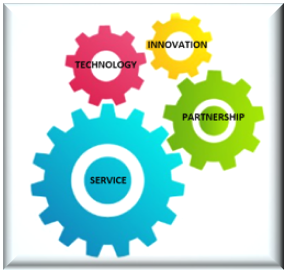
FASTRACK Academic Talent Development seeks to identify our gifted and talented students,
enrich student learning through development of general capabilities and 7Cs of
21st century learning skills, facilitate quality partnerships, through
engagement in mentoring, volunteering and participation in extra-curricular and
co-curricular activities between schools, community organisations, industry
stakeholders or tertiary institutions.
Enrichment program and provisions are guided by the
Differentiated Model of Giftedness and Talent (DMGT) by Françoys Gagne. (Figure
1 below)
 Students may be nominated during the enrolment interview as gifted or a high
potential learner in one or more domains or field. The key purpose of identification is to
enable class teachers to provide appropriate learning opportunities that meet student’s
individual needs.
Students may be nominated during the enrolment interview as gifted or a high
potential learner in one or more domains or field. The key purpose of identification is to
enable class teachers to provide appropriate learning opportunities that meet student’s
individual needs.
Other forms of nomination procedures such as longitudinal report data,
psychometric reports and other standardised assessments are used.
Personalised Learning Experience
FASTRACK Academic Talent Development builds upon the strong principles of Universal Design for Learning (UDL) when offering personalised learning experiences to the gifted and talented such as in:
- Content (working around high interest topics allowing faster pace or compacting)
- Process (use of higher order thinking, problem solving and critical and creative thinking focus)
- Products (multiple ways to demonstrated learning using their strengths)
- Learning environment (collaborative discussions, independence and intrinsic learning)
FASTRACK Enrichment Strategies
FASTRACK Academic Talent Development is committed to
assist the teachers in providing student opportunities that translate potential
into high performance yields through 5 different strategies.
- e-STEAM Academy – A selective gifted program embedding social Enterprising in Science, Technology, Engineering, Arts and Mathematics is offered to the upper 10% students in Middle School (Year 7-9).*
- Learning Beyond the Classroom (LBC) – Opportunities to participate in in-school and out-of-school enrichment programs or services are offered.
- Curriculum Adjustments and Differentiation (CAD) - Adjustments are made by class teachers to recognise different learning behaviours of gifted and talented through self-directed learning, high order thinking, open ended tasks, individual inquiry-based learning, abstraction, complexity or depth.
- Classroom-based Acceleration Strategies (CAS) – Aspects of curriculum standards covered are adjusted to enable compacting and telescoping allowing students to skip parts already mastered and/or move rapidly through content. Evidence of achievement is documented.
- School-level Acceleration Strategies (SAS) – Adjustments are made through partial or full-year level advancement in one or more subjects. Evidence of achievement is required. Acceleration is allowed in consultation with Gifted Education Committee and School Leadership.
* Identification process exists. Please enquire with Gifted Education Leader
